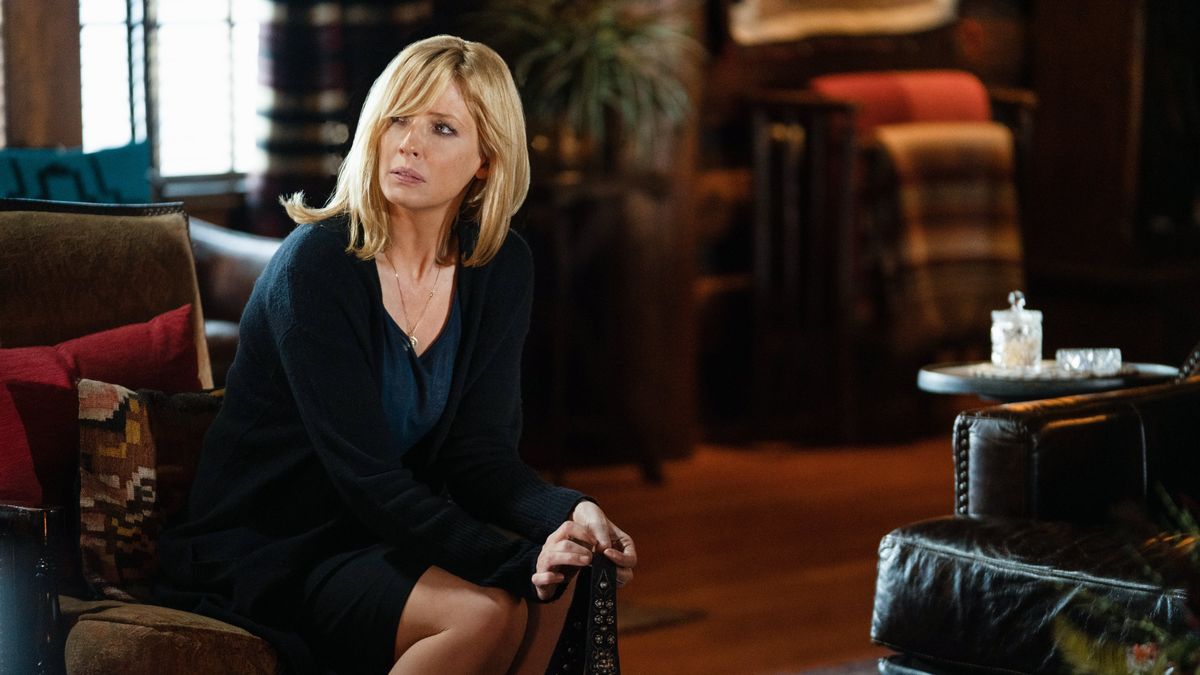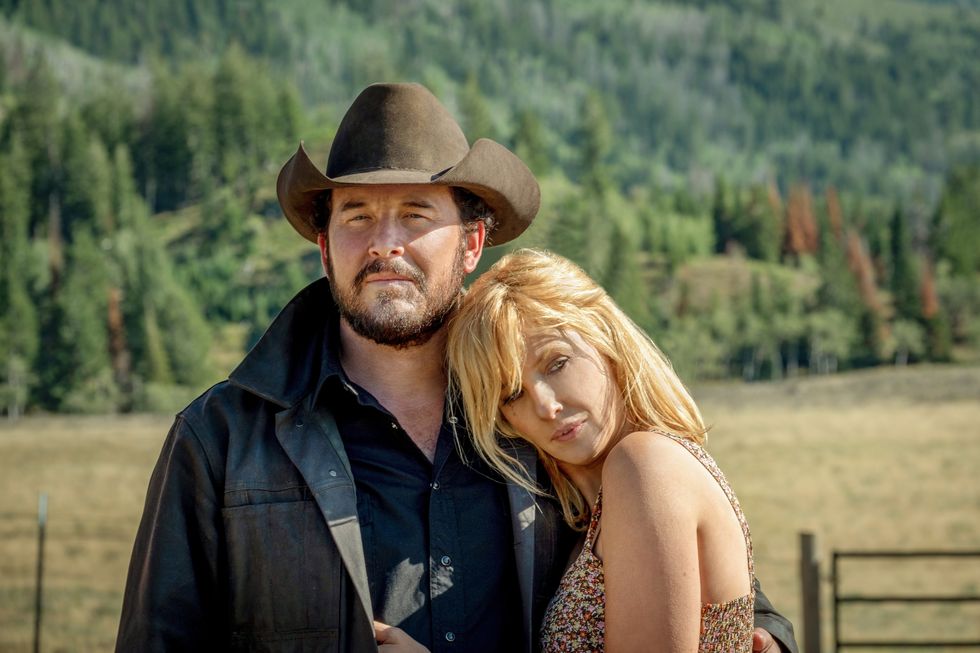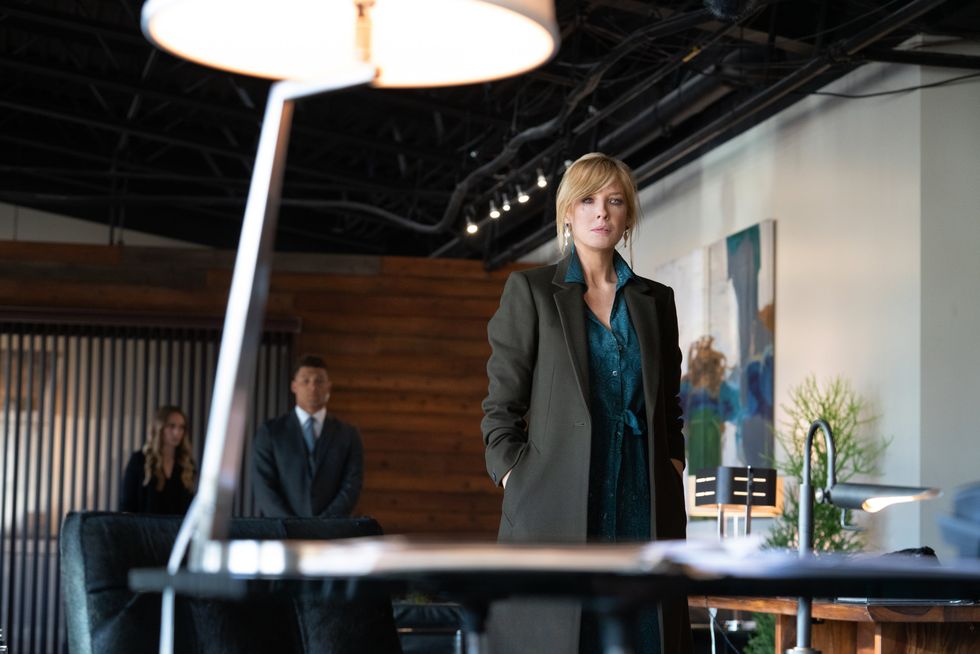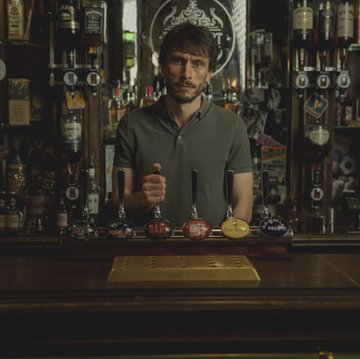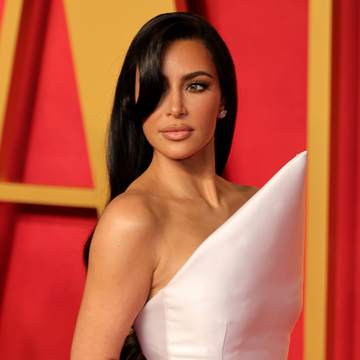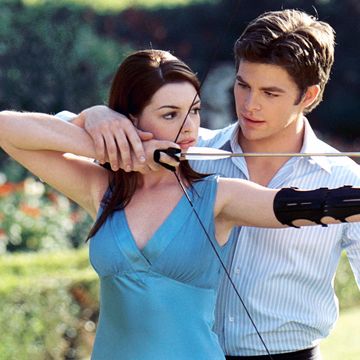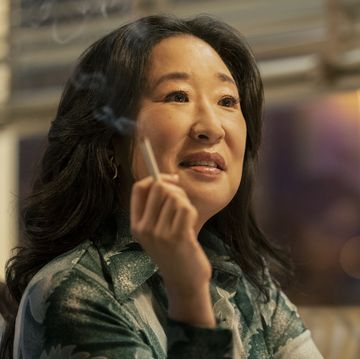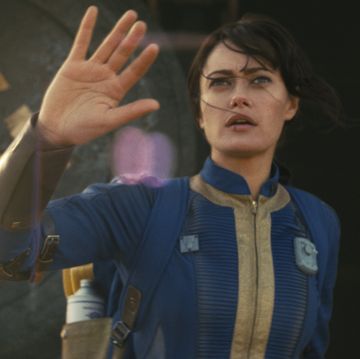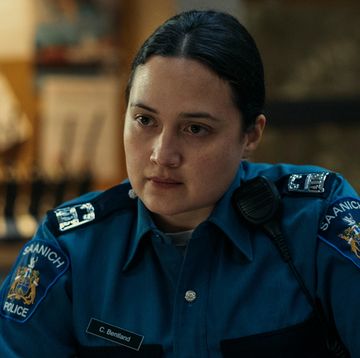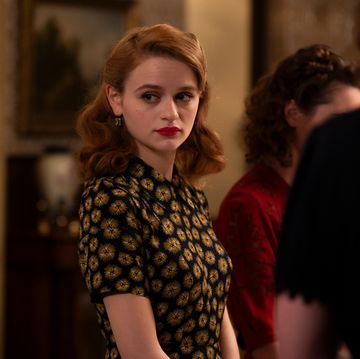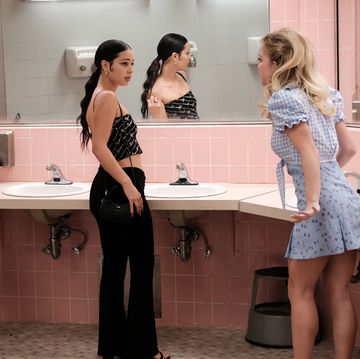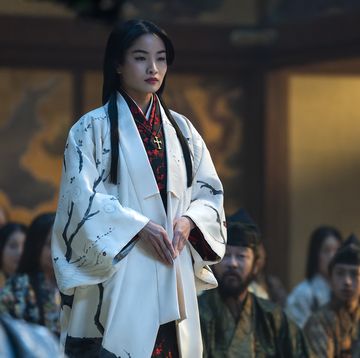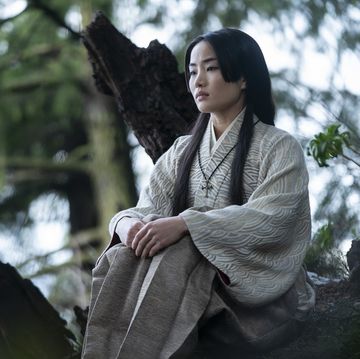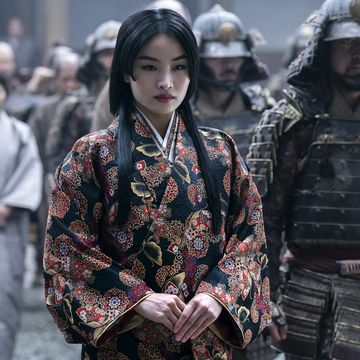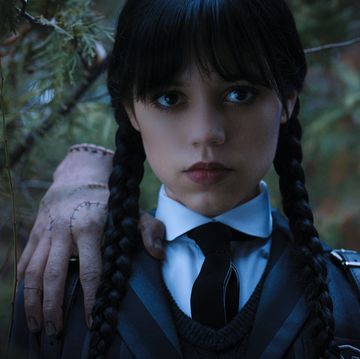It's strangely fitting that Yellowstone should be underestimated. The Paramount Network drama by Taylor Sheridan, depicting a Montana ranching family's fight to preserve both their land and their power, has only ever been nominated for a single Emmy, in spite of its absolute domination in the cable landscape. On the eve of its season 4 premiere on November 7, the series raked in 11.4 million viewers—the biggest same-night audience since The Walking Dead, circa 2018. In a television environment lorded over by streaming giants like Netflix and HBO Max, Yellowstone is one of the only remaining arguments for a cable-first approach.
Yet it's taken a number of seasons for legacy media to catch on, as Vulture's Josef Adalian recently posited: “It isn’t the kind of show critics or pop-culture writers go crazy over, the way they (okay, we) salivate over Succession.” But why? Yellowstone is built like a prestige vehicle, a fast-paced, violent drama with a cast of richly developed characters in a gorgeous, emotional setting. It has a widely acclaimed, popular actor (Kevin Costner) at its helm. Where's the disconnect?
Kelly Reilly, the actress who plays flame-haired, flame-tongued Beth Dutton, has a few ideas, though she's wary of vocalizing them. She recognizes that Yellowstone's lens rests most comfortably on the Dutton family, led by John Dutton (Costner), whose enormous patch of land in Montana is a magnet for money-hungry real-estate opportunists. This land is the home of a misfit cohort of blue-collar cattle wranglers who share a bunkhouse and an unwavering devotion to the Yellowstone symbol. It is also the ancestral home of the Native Americans who live on the reservation adjacent to the Yellowstone Ranch, one of whom is John's daughter-in-law.
Throughout the show's now-four seasons, John butts up against the stubbornness of his own worldview—that this land belongs to him, and it is his God-given duty to protect it—and the advancing machinations of the society around him, both in terms of politics and capitalism. This attitude has led him to become something of a cultural conservative figurehead, an ironic development given that John's mentalities are often the very thing corrupting (and killing) his family. As he grows increasingly hell-bound on preserving his way of life, so does his actual life—and the lives of those around him—grow more at risk.
“People perceive all my stuff as red-state, and it’s the most ridiculous thing,” Sheridan once told the New York Times, back in 2019. “If you truly look at this show…these are pretty wildly progressive notions...I’m not just going to show you one side. I’m going to show you all sides.”
Perhaps it is this insistence on all-sides-ism that has led some to dismiss Yellowstone. Perhaps, for others, it's the Middle America setting. But it would be a mistake, in particular, to dismiss the work of Reilly, whose role as Beth is one of the most nuanced and entertaining on television today. At face value, Beth is a mirror of her father: a foul-mouthed, tough-as-nails woman who, at the beginning of season 4, ambles out of a bombed office building to bum a cigarette. She is also a guilt-ridden, devoted daughter to John and partner to Rip (Cole Hauser), the ranch's chief cowboy.
But Beth, more than any of the other white characters on Yellowstone, has a story that's sharpened by the politics of the era. As a teenager, she was accompanied by her brother, Jamie, to receive an abortion at a clinic on the reservation, where forced sterilization was common practice. When the receptionist reminded Jamie that all patients undergoing abortions must also be sterilized, he agreed to it—without telling his sister. When she finally learned the truth, it unleashed a lifelong hatred of her brother—and a fear that she could never build the family she so desperately needed as a child in mourning.
Now, in season 4, Beth is up against the impeding forces wrestling to bury her father. Up until now, she has devoted her entire life to protecting him, to paving his legacy. But with her recent engagement to Rip and the introduction of young Carter (Finn Little) as a foster son, Beth has something more than moral ambiguities to contend with. She has no trouble eviscerating her enemies. But what if those enemies draw closer to home? Can she finally break free of the prison John has built around her? Or is she, like her father, too trapped within an imagined past to squeeze out a future?
As fascinated with these questions as her audience, Reilly sat down with ELLE.com to discuss the future of Yellowstone—and what she wants to see Beth do next.
Before you signed on for this role, had you ever played a character with this level of ferocity?
Never. I'd certainly not seen a character like this. And it wasn't like I was desperate to play such a sort of...It was just something [about her that was] so powerful and broken and human. Every single line of hers in that first pilot I read, I couldn't believe what I was reading. I have the same reaction that the audience has when she comes out with some of the things she says.
When did you first become aware that Beth would survive last season's finale?
When I got the script for the explosion, of course, I asked [Sheridan] the question: “Is she going to make it? Are you trying to tell me something?” I think every actor thinks they're going to get fired. Everybody always thinks it's their last shot at it, and they'll never work again. But, no, everyone was very honest from the get-go, saying, “No, no, no. Taylor just wanted everyone to think that they all died. He wanted that cliffhanger moment.”
The premiere aired with two episodes, and there's been a lot of chatter amongst fans about why there was all this buildup around who's alive and who's dead, when it turns out the whole Dutton clan made it out okay. In fact, the series skips ahead to when everyone is fully recovered. I'm curious what your thoughts are on that reaction among Yellowstone fans, who are notoriously vocal with their thoughts.
I have a full backstory in my head of what happened. I think that Beth had skin grafts, and she went and saw the best plastic surgeon to get her face fixed. She was probably wheeled from her room into her father's room to make sure he was okay. As soon as she could get better, she was in there with him every single day. I think her recovery took at least two months. Maybe people wanted to see that, but, obviously, Taylor is the weaver of the story, and he just wanted to move it on.
[What happened to them] wasn't nothing. [In episode 3], there's the shock of seeing the burns, actually, on Beth's back; she just carries it very lightly. She never complains about what happened to her. She's not trying to get revenge for what happened to her. I think it's more about her father; she's so driven by this insane need for vengeance with anything involving protecting him.
Beth feels she's responsible for her own mother's death, and that she took away her own father's absolute shot of happiness. I mean, even her own mother blamed Beth when she's dying: “This is all your fault.” Because [Beth] was afraid of a horse.
So Beth just cuts out fear, cuts it out of her soul and becomes the strongest. Fear to her is weakness. Fear for her is loss. So these [vicious] things [she says], they're so luscious and rich and fun to say, but, ultimately, it's about portraying her need. You might say it's misguided; it's misplaced. Maybe she'd be better off in therapy. She can't make it better for her father, but what she thinks she can do is protect the ranch for him. That's her reason to be, really.
Because of John being, as you say, Beth's “reason to be,” it's fascinating to watch that worldview complicated by the other loves in Beth's life: chiefly Rip and—now, perhaps—the introduction of Carter. As someone with an intimate look inside her head, why do you feel Beth has these maternal instincts around Carter? We know she can't have children of her own. Is that why she's drawn to him so suddenly?
I don't know if it's a maternal instinct. I don't know if it's just, she sees this kid who has absolutely nothing in the world. Beth is a fatalist as well. I don't think she's heartless. She's tough as nails to her enemies, but, actually, there's a good person in there.
I go back to the other season, when she gave $300 to the girl who got beaten up in the liquor store. She's kind to people that suffer because she knows suffering.
And then, on top of that, she sees the man she loves [in Carter]. She sees Rip. She says, “He's you, 30 years ago with the same options you had, which is nothing.” John Dutton, he took Rip in and gave him a chance. So there is [something] poetic about giving that opportunity back to somebody. But she knows that [Carter's] going to push Rip's buttons, because Rip's going to just see himself. That's why Rip was so hard with him. It's hard to be faced with your own pain.
To get to the heart of your question, I think Beth wants a family more than anything. I think she wants to be with [Rip] more than anything. Losing her mother was one of the most difficult things that ever happened to her, and the Dutton family's been broken ever since. That's where, I think, Taylor weaves really beautifully this story of Beth suddenly put in a situation where she could fall in love or give her heart to a child. I love that it's not a baby. It's a kid. It's a kid, and I think whether she allows herself to step into a mother [role], I don't know. To love is to risk.
I think she feels so much guilt that she's not able to give [Rip a family] that maybe this is a way of doing that. But, as with everything with Taylor Sheridan, it's not going to be an easy road.
There's this line in episode 3 that so perfectly encapsulates the way Rip and Beth relate as a couple. She's angry with him because she wants to take Carter shopping, but Rip says it'll spoil the kid. She kisses Rip on the cheek and says, basically, “I love you, I'll see you at the house tonight, but fuck you.” He grins as she saunters away. How have you and Cole Hauser mastered that dynamic?
Him and I, we just click. We click as friends; we click as workmates. I've never worked with anyone, like a love interest, that I've been able to work with so fluidly and with so much trust. We really hold space for each other and help each other out and egg each other on and tell each other if it's too much, which is usually me going, “Is this too much?” and him responding, “Fuck, no.” He's always pushing me.
The backstory is he's the only man [Beth]'s ever loved. So I think why people love them so much is they're so tough with everybody else, but with each other, they see each other. There's something really wholesome about it, which is hilarious, because they're the least wholesome people I know.
This is one of a number of shows on television right now about a big family business and the legacy that accompanies it. But part of what's fascinating about Beth is she's not really interested in the ranch. It's all about protecting John. Do you think there's anything that would lead Beth to turn against John?
I mean, who knows the way Taylor's going to take these characters. But it's questionable if John Dutton is a good man. It's questionable if John Dutton is a good father. And, like most things in this show, the truth is somewhere in the middle. He talks about Beth as being evil, and he needs evil. She's a really good asset to him. I mean, can you imagine saying that about your kids?
I would like Beth to start living for herself and her own happiness. Every now and then, I get glimpses of it, and Taylor's giving you glimpses of it, and then she's back in the fire of fighting. Because that's all she knows.
But what's so nice about the glimmers of it is that I'm hoping that's where it ends. I don't know where it ends. I don't ask. I wait to read the script and see where [Taylor] takes me, and I trust it, because I know how much he adores all of these characters.
I think what's interesting, actually, for me, from season 1 to now, is that Beth absolutely hated being at the ranch at the beginning. It was a graveyard of all her demons and everything that was difficult in her life. Soon as she's there, she has to [confront it], and it turns her into a fucking lunatic. So there's all these themes that Taylor writes for Beth that are her coming home and turning into the 16-year-old again. And she hates it. She's like, “Why did he turn me into this psychopath?”
But her love for the ranch has developed. She's understanding that she is part of this place. She is made of those mountains, that rock. She is DNA of that place. So I think she's fighting for it. Especially in this season, you see that this is the most dangerous place they've ever been in as far as losing it. I think she feels not just terrified for her father, but for everything that she loves about the place. As she loves her husband, she's sort of growing as a character and as a woman, so she could embrace [the ranch] in a way. And I think that's what's interesting about her heart opening.
It's also fascinating to watch the trajectory of this show as a cultural product. It's one of the most-watched shows on television. And yet, Yellowstone has yet to attract much awards attention or feverish analysis from critics. I'd love to know why you think that is, and if you see it changing anytime soon?
I think it's a little bit bewildering. It was like, “Hello. Hi. We're here!” But, the truth is, we're a bunch of actors and a crew out in Montana filming. We're nowhere near Hollywood or New York. We're out there filming in these elements, living these characters, loving the opportunity to get to do what we do. I live in New York; I go back home and you see the Emmys and stuff, it's just, “Oh, look, we don't exist.”
Yet millions of people are watching, so we might be doing something right. I, honestly, don't know the answer. I think we're perceived as a particular type of show that isn't conducive to necessarily what Hollywood is wanting to [promote].
Yellowstone is perceived as a very masculine show, and it's true that many of the scenes you share are with Kevin Costner or Cole Hauser or Beth's brothers. Only occasionally do you share scenes with Kelsey Asbille. Are you working with more women this season?
This year I get to work with Jacki Weaver (Caroline Weaver), whom I love. She's such a powerhouse. She's like four foot nothing, but she's so powerful and brilliant to work with. I'm such a fan of hers. You ask most actresses, we're used to working with being the only woman amongst men, but that's changing now, which is wonderful. I get to work with Piper Perabo this year as well. Her and Beth, that's a lot of fun when you see that stuff. People are going to enjoy that.
This season I get to work with more women than I ever have. I love working with other actresses, but, at the same time, I haven't really sat there and thought, I'm working in a man's world. I don't think like that.
This interview has been edited and condensed for clarity.
